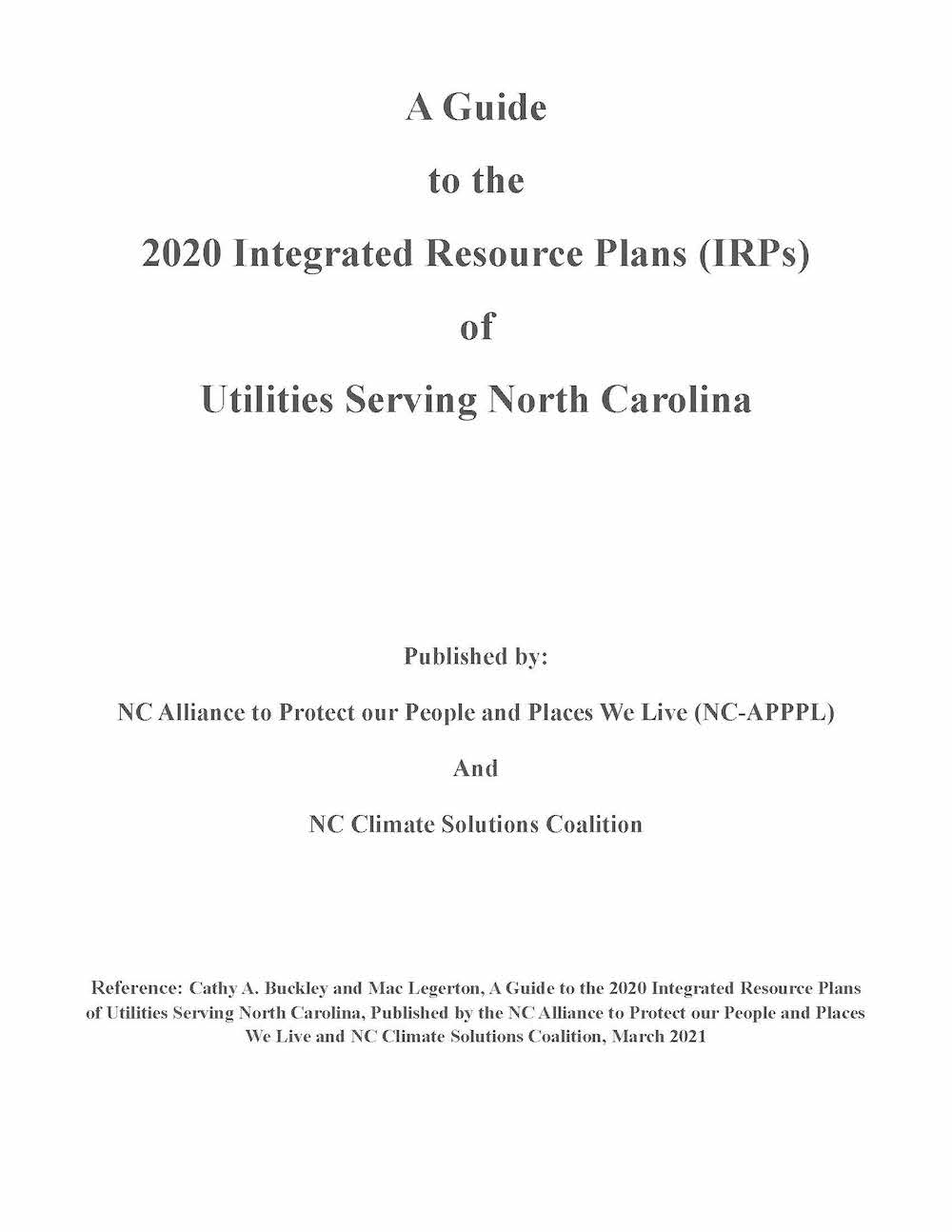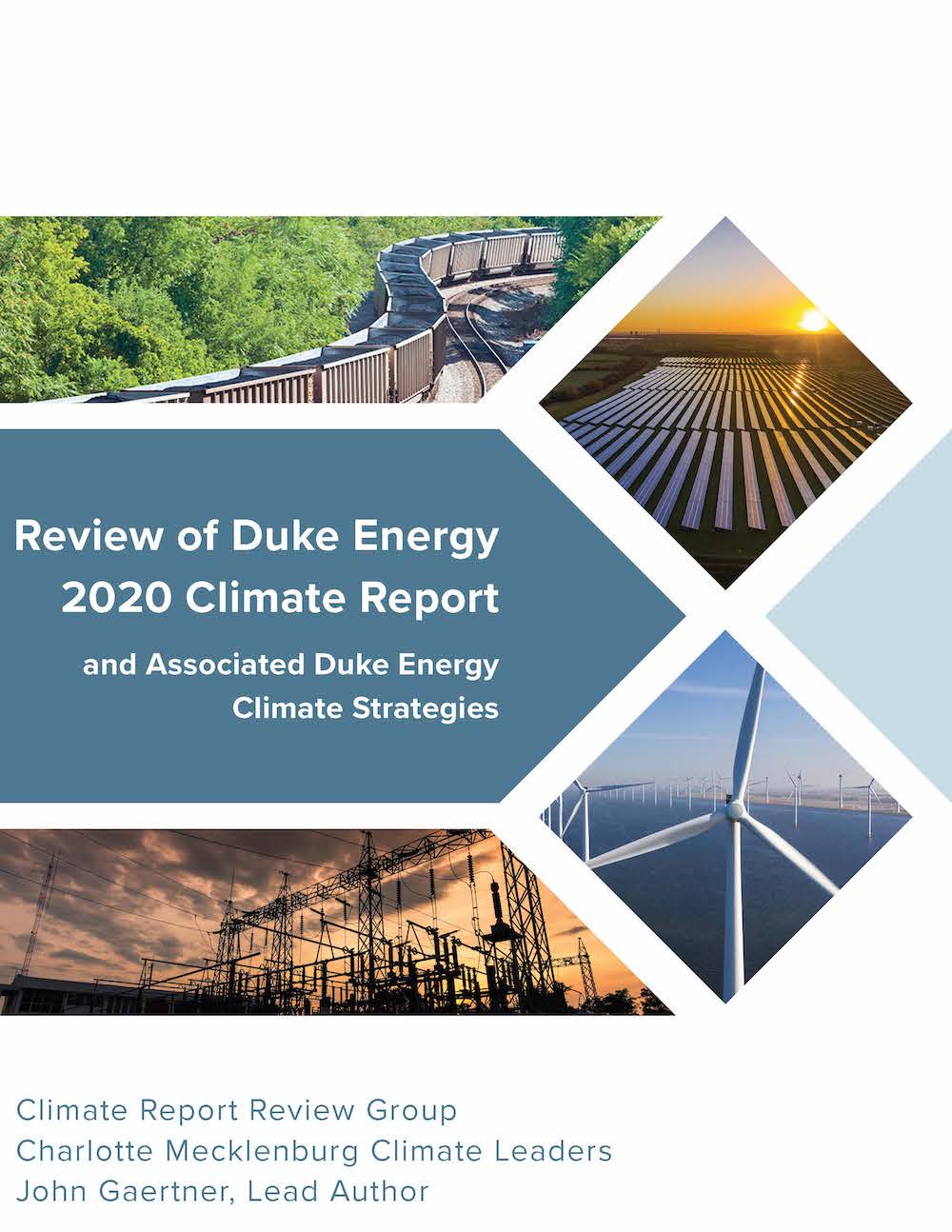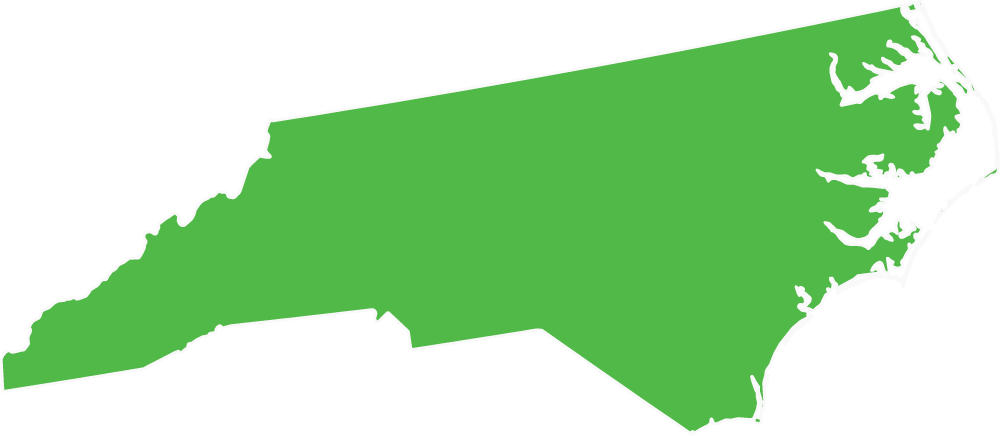Resources
This report represents the most comprehensive assessment to date of Duke Energy’s stranded asset risk in the Carolinas. The analysis finds that carbon stranding costs from existing and proposed investments in Duke’s latest IRP will conservatively total around $5 billion, based on Duke’s own corporate climate commitment – nearly $1,000 in net present value cost for every residential Duke customer in the Carolinas and more than $1 billion in excess of Duke and Dominion’s aggregate sunk costs into the Atlantic Coast Pipeline.
Cleaning up the electricity sector is the key to economy-wide decarbonization, and electric utilities have a large role to play in making sure we are on the path toward a livable future. Many utilities have stated climate goals. However, those goals are meaningless greenwashing without utilities taking the necessary actions to decarbonize. There are three key things utilities must do to enable us to avoid catastrophic warming: They must retire existing coal plants by 2030, terminate plans to build new gas plants, and build clean energy much faster. In this report, Sierra Club examines utilities’ performance on each of these three necessary actions.
In this series, IEEFA examines specific aspects of the Duke proposals to highlight errors we believe policymakers in the state need to consider. Among these will be a review of Duke’s growth forecasts; its assumptions regarding battery storage; and a look at its approach toward new solar and wind generation capacity.
This report from the NC Alliance to Protect our People and Places We Live (NC-APPPL) and NC Climate Solutions Coalition is an overview of the contents and review processes of the utilities’ Integrated Resource Plans, their proposed blueprints for creating North Carolina’s energy future. It is written to assist NC residents and ratepayers in preparing for the March 16, 2021, Public Hearing on the IRPs sponsored by the NC Utilities Commission.
This final report, prepared by the Climate Report Review Group (CRRG) and sponsored by Charlotte Mecklenburg Climate Leaders, contains 47 CRRG Findings. Each Finding is intended to be an objective statement, based on reviewed materials and deemed critical to understanding the accuracy, completeness, and/or significance of some element of Duke Energy’s climate strategy.
Public Dockets
Testifying at Duke’s public comment hearing








